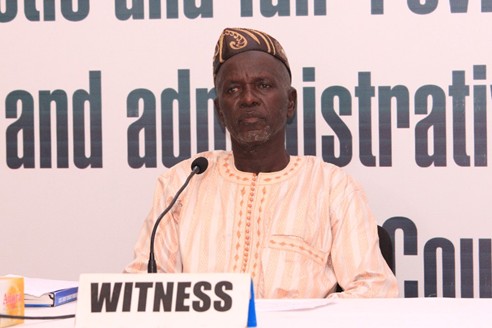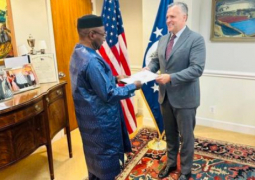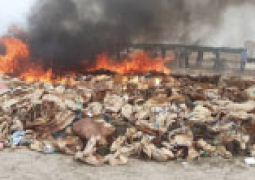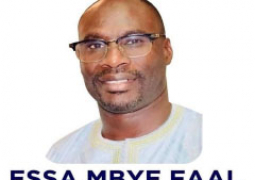
Bojang confirmed that the council conducted the vast majority of its procurement transactions through single-sourcing without public tender or competitive bidding. In 2022 alone,
Bojang revealed that out of 626 procurement transactions recorded, 615 were carried out via single-sourcing, totaling over D9.7 million in expenditure. He admitted there was no competitive procurement, no market survey, and no transparency in how vendors were selected.
Despite acknowledging that these issues were repeatedly raised in internal meetings, Bojang conceded that little or no action was taken to correct them.
The Commission further heard that the Contracts Committee of the council, the body mandated to review and approve procurement deals, was ineffective throughout his administration.
Bojang claimed to have relied heavily on the procurement officer, whom he described as competent and strict, but evidence presented showed that the procurement unit was often sidelined entirely.
Fatoumata Jaiteh, the council's procurement officer at the time, had issued a formal letter dated 4 November 2021 to Bojang, the Chief Executive Officer (CEO), and other senior officials, warning that she would no longer file backdated invoices, describing the practice as improper and unethical. The letter, which was tendered into evidence, also raised concerns that procurement activities were often carried out without her knowledge or involvement, and that she was only approached to prepare supporting documents after procurements were already completed.
Bojang admitted receiving the letter but failed to take formal action. Instead, he convened what he described as a small meeting with the CEO and two others to discuss the matter, a gathering which had no official minutes or documentation.
Lead Counsel Patrick Gomez challenged the credibility and seriousness of the meeting, calling it a “family meeting,” not a formal one fit to address corruption concerns raised by the procurement officer. Gomez said Jaiteh’s letter was effectively a warning of ongoing corrupt practices, and Bojang, as chairman, had an obligation to act. Bojang agreed that he failed to do so.
One of the most controversial issues raised during the testimony was the purchase of 690 bags of 25kg rice worth D500,000 during the COVID-19 pandemic for distribution to vulnerable communities. Bojang admitted that the contract was single-sourced to an individual named Baboucarr and did not go through the Contracts Committee. When asked why the required procurement processes were not followed, Bojang argued that the situation was an emergency and his priority was ensuring that his people received food assistance quickly.
“I did not take part in the procurement, but I was very much concerned with ensuring my people received support,” Bojang said, adding that his focus was on helping those who elected him into office during a difficult time.
However, Lead Counsel Gomez rejected the explanation, stating, “We understand the trauma your people went through, but if you don’t address corruption, the support becomes unsustainable. Your job as chairman is not only to help, but to ensure the help reaches the people lawfully. Development must come with accountability.”
The Commission then questioned the price of the rice, pointing out that while Kerewan Area Council bought each 25kg bag at D690, Mansakonko Area Council acquired the same item during the same period at D650. Bojang initially said he believed it was D625, but when presented with a statement from the supplier confirming it was sold at D690, he shifted responsibility to the CEO, saying the explanation should come from him. He admitted that he did not initiate any internal audit or oversight mechanism to verify the procurement.
Further revelations during the hearing painted a picture of a council that lacked fundamental administrative and financial structures
Read Other Articles In Headlines





